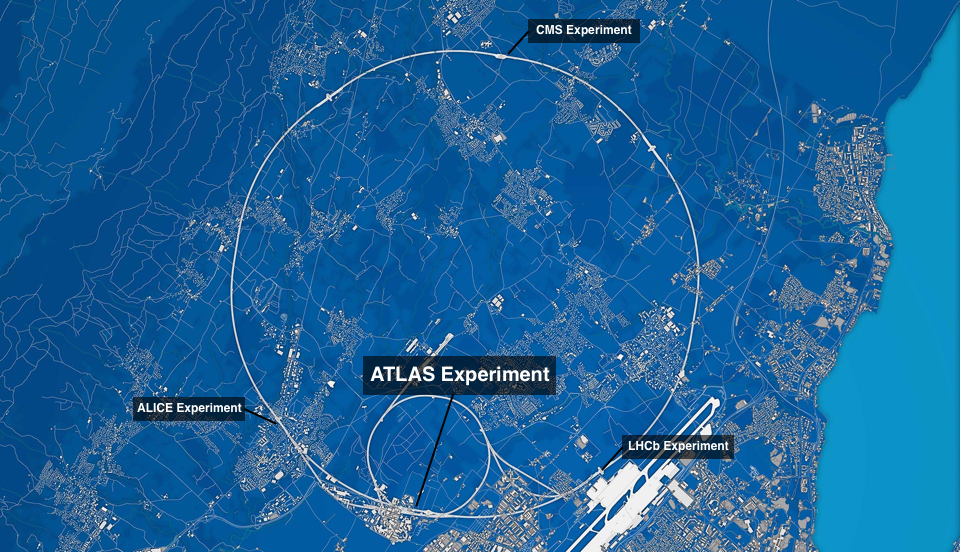The ATLAS Experiment
One of the four major experiments at the LHC
ATLAS is one of the four major experiments at the Large Hadron Collider (LHC) at CERN. It is a general-purpose particle physics experiment run by an international collaboration and, together with CMS, is designed to exploit the full discovery potential and the huge range of physics opportunities that the LHC provides.
Push the frontiers of knowledge
ATLAS' scientific exploration uses precision measurement to push the frontiers of knowledge by seeking answers to fundamental questions such as: What are the basic building blocks of matter? What are the fundamental forces of nature? Could there be a greater underlying symmetry to our universe?
Test the predictions of the Standard Model
ATLAS physicists test the predictions of the Standard Model, which encapsulates our current understanding of what the building blocks of matter are and how they interact. These studies can lead to ground-breaking discoveries, such as that of the Higgs boson, physics beyond the Standard Model and the development of new theories to better describe our universe.
The years ahead will be exciting
The years ahead will be exciting as ATLAS takes experimental physics into unexplored territories – maybe with new processes and particles that could change our understanding of energy and matter.

ATLAS Across Time
The approval of the ATLAS Experiment was an important milestone in the history of particle physics – but it was just the first step in a long journey. Making ATLAS a reality required years of innovative developments in technology and physics. Learn the history of its development in the timeline below.
